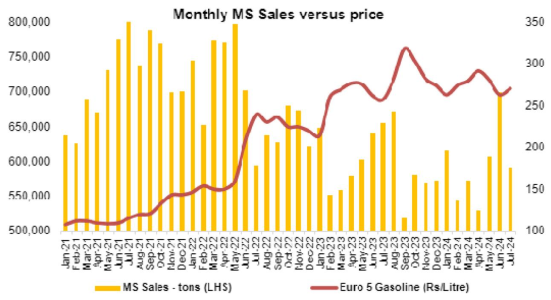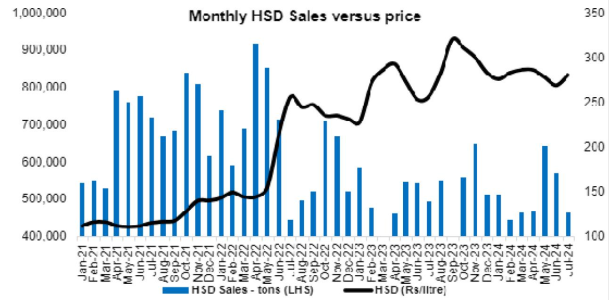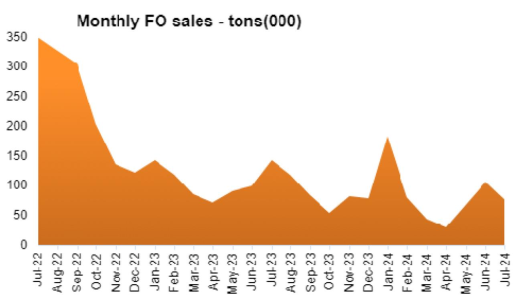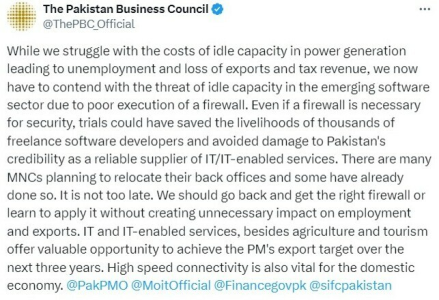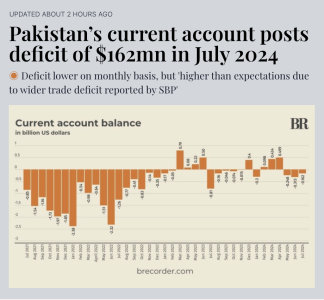Oil and gas exploration companies pledge $5 billion investment in Pakistan
Last updated: 2024/07/06 at 3:21 PM
Prime Minister Shehbaz Sharif presides over a meeting in Islamabad. — APP/File
- Oil and gas companies meet PM Shehbaz to discuss investments.
- Prime Minister forms high-level committee to address E&P sector issues.
- It secures the E&P sector for complete investment and profit security.
ISLAMABAD: A group of local and international oil and gas exploration and production (E&P) companies are poised to pump $5 billion into Pakistan’s oil sector, showing confidence in the government’s investor-friendly policies and assurances of the safety of their capital, according to the state -run
APPLICATION.
An announcement to this effect came to light at a meeting held between a delegation of local and international E&P companies with Prime Minister Shehbaz Sharif on Saturday, as pressure continues to mount on Islamabad to shore up the country’s faltering energy infrastructure.
If implemented, it will not only help provide more reliable energy supplies to the country’s growing population, but also reduce dependence on expensive oil imports.
“Exploring oil and gas reserves locally in Pakistan is our top priority,” Prime Minister Shehbaz said during the meeting with the delegation at the Prime Minister’s Office, calling on oil and gas explorers to tap its offshore reserves as well. Pakistan.
Pakistan spends billions of dollars every year to import oil and gas, the prime minister said. “Production from local reserves will save Pakistan’s precious foreign exchange and fuel and natural gas will become affordable for the common man.”
Facing a severe balance of payments crisis, record inflation and a sharp currency devaluation, Pakistan lacks sufficient resources to operate its oil and gas plants, so it imports most of its energy needs.
Consequently, planned blackouts, known as loadshedding, occur every summer due to fuel shortages and high demand. The duration of these power outages varies in different regions of the country, which has a population of 241 million.
The representatives informed the Prime Minister that during the next three years, about 240 exploratory wells will be drilled for $5 billion for oil and gas exploration in Pakistan.
The meeting was informed that at present, Pakistan’s domestic production stands at 70,998 barrels of oil and 3,131 MMSCFD of natural gas per day, which needs to be drastically increased to achieve as much self-sufficiency as possible.
Forming a committee to coordinate with the explorers, the Prime Minister directed the relevant authorities to provide solutions to all the problems of the industry on priority. The new body, which will consist of experts, secretaries and the relevant authorities, will be chaired by Deputy Prime Minister Ishaq Dar.
The committee, after consultation with stakeholders, will formulate proposals to create an attractive policy for exploration and development of oil and gas reserves in Pakistan.
State Bank of Pakistan (SB) Governor Jamil Ahmed told the meeting that on specific instructions of the prime minister, all remittances (profit of the business) had been sent to the respective countries of the oil and gas producing companies.
The delegation thanked the Prime Minister for making the oil and gas exploration and production sector part of the consultation process, listening to their problems and finding serious solutions to them.
The meeting was attended by Deputy Prime Minister Ishaq Dar, Federal Ministers Ahad Khan Cheema, Muhammad Aurangzeb, Syed Mohsin Raza Naqvi, Engineer Amir Muqam, Ahsan Iqbal, Sardar Awais Khan Leghari, Deputy Chairman Planning Commission Jehanzeb Khan, Prime Minister Coordinator Ranaz Ehsaan Chairman of the Federal Board of Revenue Amjad Zubair Tiwana, representatives of domestic and international companies and relevant senior officials.
According to the Pakistan Economic Survey 2023-24, Pakistan’s oil import bill declined in the first nine months (July-March) of the financial year 2023-24, not because of higher local production but because of lower consumption.
The Economic Survey reports that the drop in consumption was caused by reduced economic activity and higher product prices. Total imports of petroleum products fell to 11,047 thousand metric tons, worth $8.36 billion.
The main imported products are spirits (MS), high speed diesel (HSD) and crude oil. Compared to the same period of last financial year (2022-23), the import bill for member states decreased from $3.704 billion to $3.156 billion, for HSD from $1.646 billion to $1.050 billion and for crude oil from $4.287 billion to $4.051 billion.
Oil and gas exploration companies posted mixed results during this period. Natural gas exploration fell 2%, while crude oil production rose 1.5%.
Natural gas production fell from 1,190 million cubic feet in the first nine months of the previous fiscal year to 1,166 million cubic feet in the same period this year.
However, crude oil production rose 1.5%, from 25.5 million barrels to 25.7 million barrels.
So, the Undocyumented economy is registering fall in energy consumption YoY and moving towards becoming top 5 economy by 2075!





